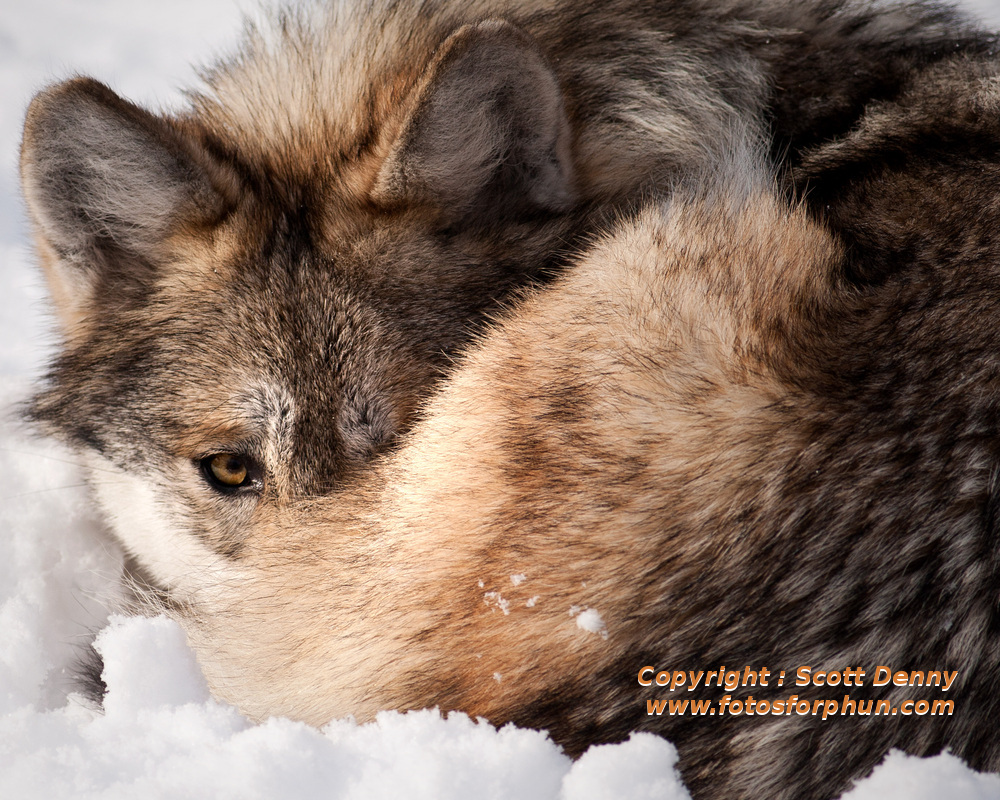07
Apr
In the News: Howling-Good Films: Wild and Scenic Film Festival Visits Flagstaff and Benefits Local Wolf Recovery Project

BY MIRANDA SCOTT —
It is dark and there are pretty pictures of wolves adorning tables lined up around the claustrophobic walls of the Orpheum Theater’s interior. A film is starting, crackling as the video player comes to life. “¦ Posters are taped on the walls urging people to “Save the Wolves.” The clock hits 7:30 p.m. and the first documentary starts, focusing on whales and saving the planet; the Wild and Scenic Film Festival has officially begun.
On March 29, a large crowd gathered at the Orpheum Theatre to take part in the film festival. A nationwide festival, the Wild and Scenic has been traveling from California to Nevada to Arizona for the better part of this year, according to the group’s website, which receives over 110 film entries every year. The films focus on improving the conditions of the world we live in through powerful change enacted by adventurous individuals ready to work toward a better tomorrow. Many of the films take place in mountainous landscapes and are primarily interested in the effects human interference and climate change have on the animal and ecological life forces in nature.
“The Grand Canyon Wolf Recovery Project hosts the Wild and Scenic Film Festival tour in Flagstaff each year to raise awareness for the Mexican gray wolf and as a fundraiser to help support our work on behalf of wolves. Our intention with hosting the film festival is to help people learn about the issues facing Mexican wolves, be motivated to care for them and strive to see them be recovered in the wild,” said Emily Nelson, project director of the Grand Canyon Wolf Recovery Project.
The Grand Canyon Wolf Recovery Project is an activist group focused on repopulating the area surrounding the Grand Canyon area. “¦ Nelson said the project works to integrate humans into the wolves’ habitat so they can learn more about the species and understand why they are currently endangered.
“By creating meaningful opportunities for the public to learn about wolves, experience their habitat first-hand, interact with land managers and engage in public decision-making, we are making positive grassroots change to achieve improved and sustainable habitat conditions for wildlife, specifically wolves,” Nelson explained. “Our goals are to compel leadership within the Grand Canyon National Park, surrounding land management agencies and the regional community to help lead the way for the return of Mexican gray wolves . . . to a suitable portion of their historic range in Arizona and southern Utah.”
Many who attend the event also felt passionately about this cause.
Andrew Mann, a junior forestry major, attended with Barbara Sugarman, also a junior forestry major. Mann said he came for the topic of environmental awareness and because Sugarman, who had a more personal reason for attending, convinced him to.
“Well, I actually worked for the wolf recovery project the summer after my freshman year at NAU,” Sugerman [sic] said. “I just find it really interesting that they advocate public education and I think they have really good science behind their philosophies as to why the Mexican gray wolf would be beneficial to the Grand Canyon area.”
The sales made from the ticket prices will fund the recovery project and be used to promote further education and activism for the Mexican gray wolf repopulation cause. The Wild and Scenic Film Festival is year-round and comes to Flagstaff annually. For more information about the Grand Canyon Wolf Recovery Project or the Wild and Scenic Film Festival, visit their websites.
***************************************************************************
For more information and upcoming events, visit the Grand Canyon Wolf Recovery Project on the web: www.gcwolfrecovery.org
To read the full article, published by the NAU Lumberjack, click here.
********************
Grand Canyon Wolf Recovery Project will be presenting “Mexican Wolves of the Southwest”,
Monday, April 8, 7pm — 8pm at Sedona United Methodist Church, 110 Indian Cliffs Road, Sedona, AZ
The Grand Canyon Wolf Recovery Project is dedicated to bringing back wolves and restoring ecological health in the Grand Canyon region. This presentation will provide information about the history and current status of Mexican wolves, their biology and natural history, including diet, family life, and behaviors. Also learn about their role in ecosystems of the Southwest, information on the captive breeding program and reintroduction into the Blue Range Wolf Recovery Area, and current efforts to help them recover in the wild on the Colorado Plateau.
Click here for more information.
Or contact Emily at Grand Canyon Wolf Recovery Project
(928) 202-1325
Photo credit: Scott Denny



